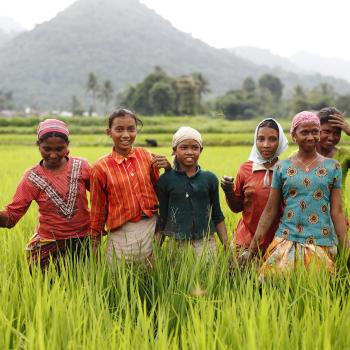
Adolescence, Youth and Gender: Building Knowledge for Change
8-9 September 2016, Lady Margaret Hall, University of Oxford
Adolescence has risen high on the global agenda, with a particular focus on girls. Researchers, policymakers and practitioners are increasingly interested in the second decade of life as a newly recognised ?window of opportunity? to reduce poverty and inequality and to prevent the transmission of poverty across generations.
This two-day international conference will promote dialogue and critical reflection on the latest evidence, current paradigms, concepts and approaches to adolescence, youth and gender in international development and consider the implications for policy and programming.
Conference questions
The conference will address key questions relating to adolescence, youth and gender in global contexts, for example:
- When and how do gender inequalities emerge and manifest themselves during the first two decades of life, and what are the later consequences for both young men and women?
- What is the interplay between gender norms, political-economic structures and individual behaviours?
- How does gender relate to poverty and to other intersecting inequalities in adolescence and youth (age, ethnicity/race/caste, class, location, sexuality, disability, etc.)?
- What does ?empowerment? look like for young people in different contexts, and is empowerment a solution to exclusion and discrimination?
- 'What works? to reduce gender inequality, and how does reducing gender inequality in the first two decades of life have long-term effects over the life course?
Download the Call for Papers. Deadline for submission of abstracts 15 February 2016.
Details of plenary speakers and registration will follow in May 2016 - see our conference web page for more information.

Adolescence, Youth and Gender: Building Knowledge for Change
8-9 September 2016, Lady Margaret Hall, University of Oxford
Adolescence has risen high on the global agenda, with a particular focus on girls. Researchers, policymakers and practitioners are increasingly interested in the second decade of life as a newly recognised ?window of opportunity? to reduce poverty and inequality and to prevent the transmission of poverty across generations.
This two-day international conference will promote dialogue and critical reflection on the latest evidence, current paradigms, concepts and approaches to adolescence, youth and gender in international development and consider the implications for policy and programming.
Conference questions
The conference will address key questions relating to adolescence, youth and gender in global contexts, for example:
- When and how do gender inequalities emerge and manifest themselves during the first two decades of life, and what are the later consequences for both young men and women?
- What is the interplay between gender norms, political-economic structures and individual behaviours?
- How does gender relate to poverty and to other intersecting inequalities in adolescence and youth (age, ethnicity/race/caste, class, location, sexuality, disability, etc.)?
- What does ?empowerment? look like for young people in different contexts, and is empowerment a solution to exclusion and discrimination?
- 'What works? to reduce gender inequality, and how does reducing gender inequality in the first two decades of life have long-term effects over the life course?
Download the Call for Papers. Deadline for submission of abstracts 15 February 2016.
Details of plenary speakers and registration will follow in May 2016 - see our conference web page for more information.

